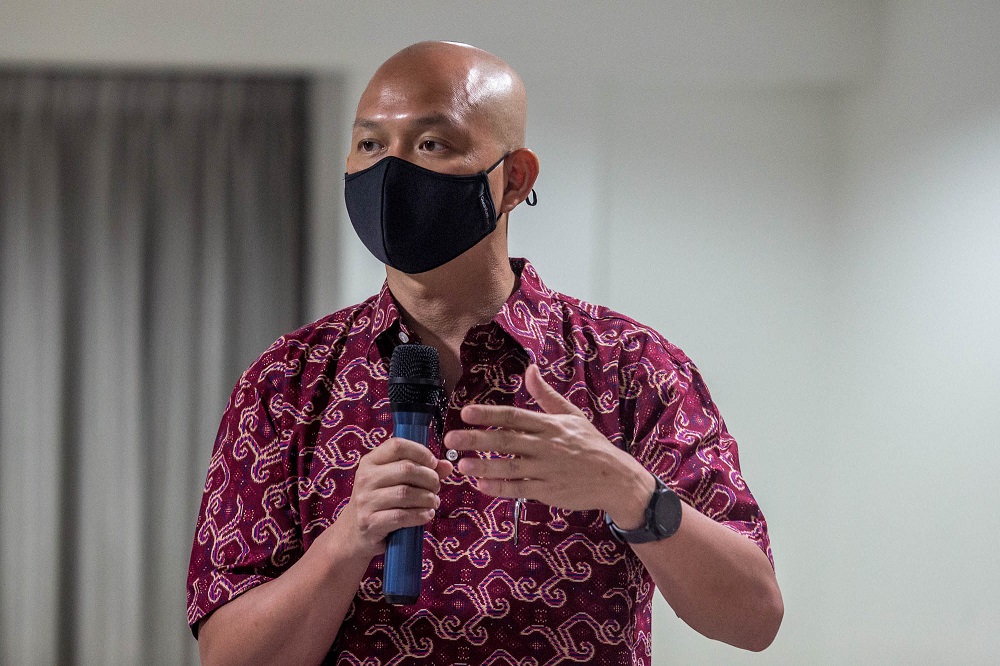KUALA LUMPUR, June 21 — Bipartisan effort is needed in order for recall elections to be realised in the country, several Opposition MPs said today.
The push for recall elections should not be seen as only supported by Opposition groups and parties but also those that have been affected by defections, said DAP’s Bangi MP Ong Kian Ming.
“I hope that we can get bipartisan support on this initiative because I’m very sure that Umno leaders are also not happy that many of their leaders and MPs crossed over to Bersatu (Parti Pribumi Bersatu Malaysia).
“This should not be seen as something only supported by Pakatan Harapan (PH) coalition or other Opposition parties, it should be supported by parties from both political spectrum,” Ong said during the launch of electoral watchdog Bersih 2.0’s recall election campaign today.
Bersih 2.0 has been working with a technology firm to organise a mock recall election online, which officially started today.
According to the Bersih 2.0 steering committee, the initiative is aimed at giving voters whose representatives have defected since February 2020 a platform whereby they can express their disagreement or support for a new candidate.
Participants in the mock recall election would be limited to registered voters at specific constituencies.
Like Ong, PKR’s Subang MP Wong Cheng agreed that all political parties should come together as party hopping was a “double-edged sword.”
“The coalition that receives any ‘frogs’ will only enjoy temporary political boost before another better offer comes along and does the same thing to those frogs or even other frogs.
“What we need is a bipartisan awakening of all these political parties, and to pass laws on recall election and hopefully anti-hopping measures,’’ he said.
Another PKR lawmaker, Lembah Pantai MP Fahmi Fadzil also agreed that the recall election campaign needs to be supported by a broader, preferably society-wide push.
“I would consider adjusting the word (recall election) to tarik balik.
“You have to find the right Malay for it and go to town with that. If you can catch and fire up the imagination of a broad Malay electorate like hentikan pengkhianatan dan penderhakaan terhadap rakyat ... I think you might see some interesting response,” Fahmi said.
Fahmi also said he was excited to see how the technology could help MPs engage better with their constituents on whether they agree on certain laws and what improvements can be done.
He also added there must be a fundamental shift in thinking at the federal government level in order for recall elections to take place.
“Because right now there is too much power concentrated there (Putrajaya) and I don’t see how Tan Sri Mahiaddin Yassin would want anything like this to happen,” he said.
In late February 2020, then PKR deputy president Datuk Seri Mohamed Azmin Ali led 10 MPs to leave the party to support Perikatan Nasional, triggering one of the country’s worst political crises and shortening the rule of Pakatan Harapan, the coalition he helped put in power.
Subsequently, more party hopping incidents have taken place, and had triggered the call of several PH state governments in respective states.
Upko Tuaran MP Datuk Seri Wilfred Madius Tangau said the recall election campaign may not be feasible in Sabah and Sarawak seeing that both states are currently facing connectivity difficulties.
“We need to do a lot of this (help to make connectivity better).
“With no connectivity we can’t carry out the recall election (as it requires for voters to go online).
“Even in the suburb, the connectivity is weak,” he said.
The simulated recall election process observes six steps where it is initiated when an elected representative hops to another party.
Bersih 2.0 will act as the Electoral Committee to verify 3 per cent of voters who are registered who have shown interest via petition to sack the representative.
Once registered voters are verified, the recall election process will begin using e-voting.
In the recall election, voters will choose whether to sack or keep the representative. To sack the representative, sack votes should be over 50 per cent of registered voters




















